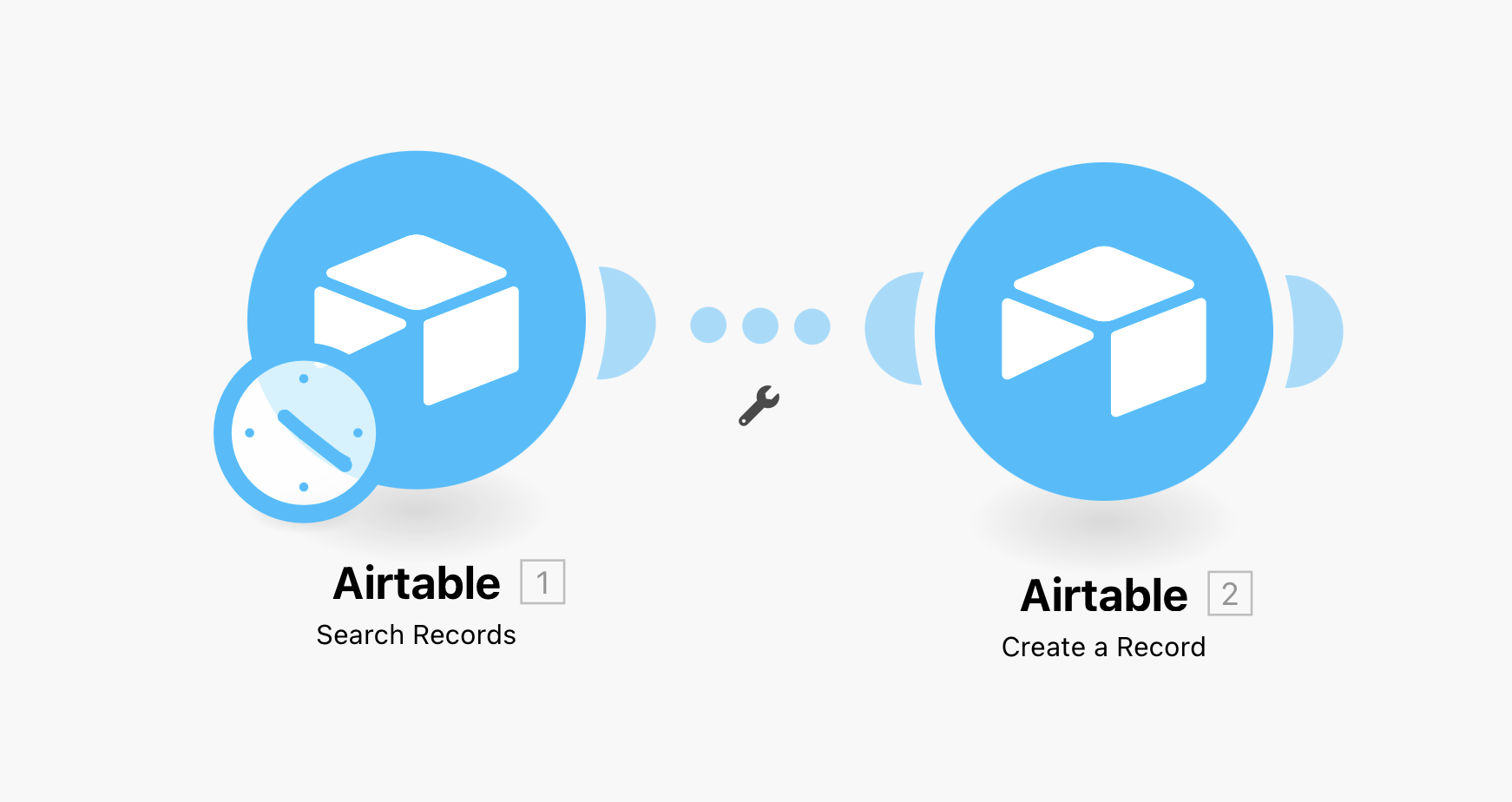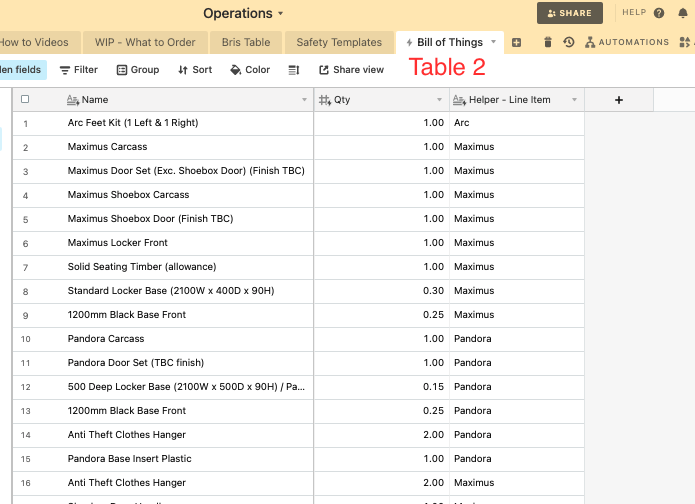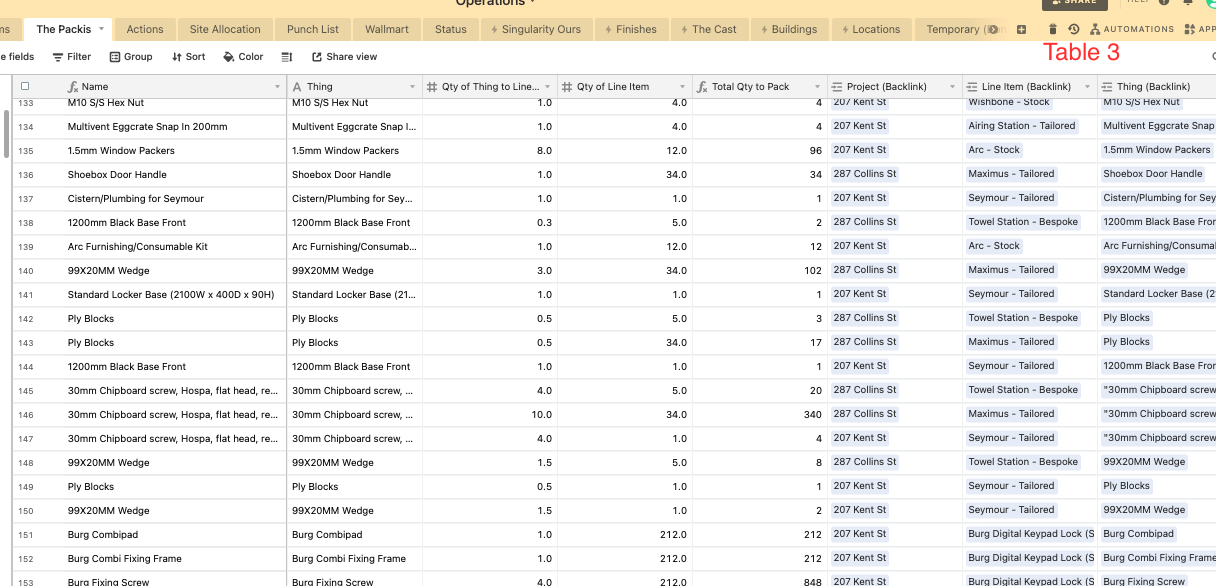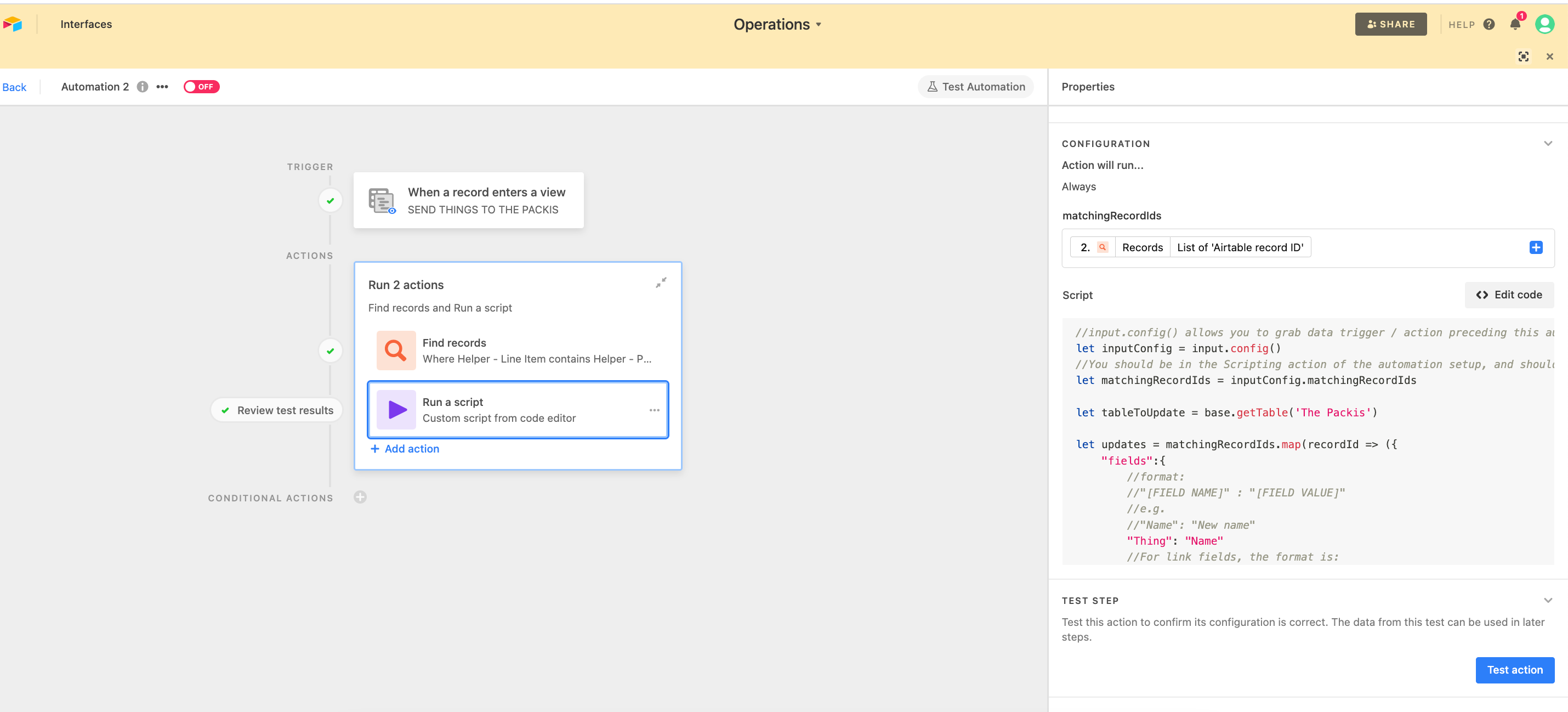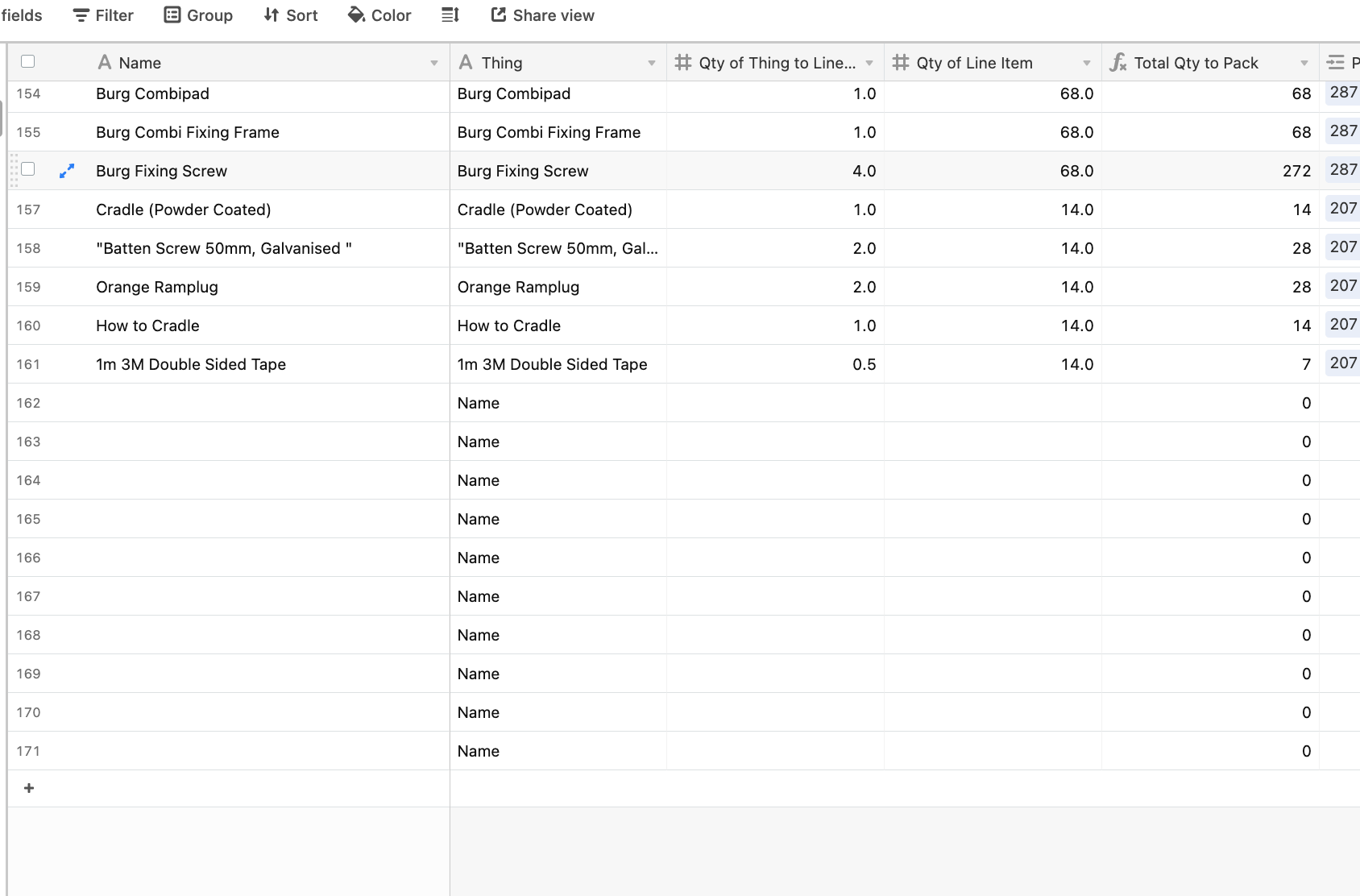Hey Community,
I need a hand to know if something is possible.
- I have Products on Table 1 which are created manually.
- These products are made up from components which are mapped as records in Table 2 (anywhere from 2 - 20 components per product).
- When a product is added to Table 1 I’m trying to find the matching components in Table 2 and then create a list of the components as records in Table 3 (as I need to perform order specific calcs here).
I can see using the automation and find records I’m able to achieve this for a single record but not multiple at once, is there something I’m missing or a simple script I could use to overcome this?
Any help would be appreciated.



